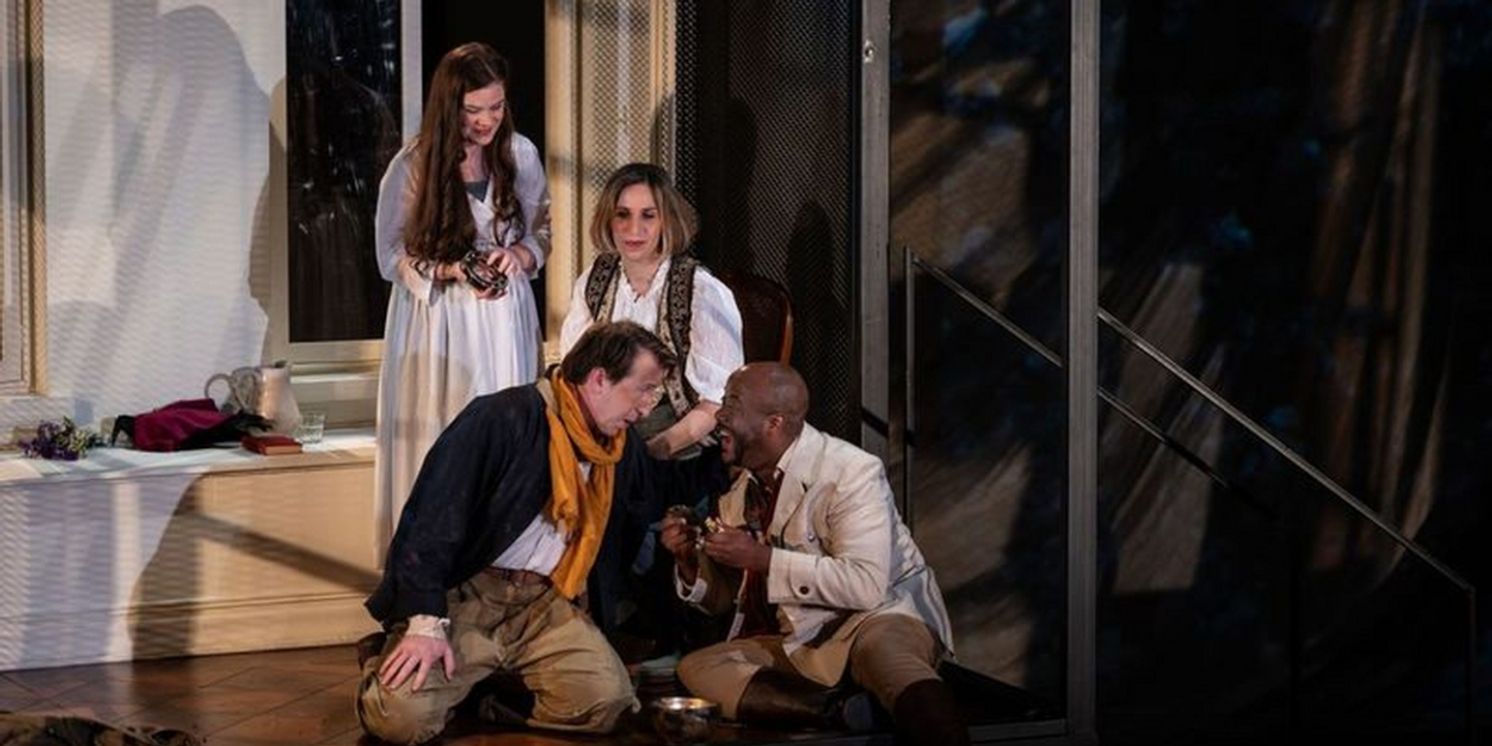Review: Separated at Birth? Boulanger's VILLE MORTE and Debussy's PELLEAS Fall Similarly on the Ear
Catapult Opera Performs First US Performances of Only Opera by the Influencer of Great Composers

It’s easy to understand why Neal Goren, Catapult Opera's founder and artistic director, was immediately taken with LA VILLE MORTE. (His program notes say, “Upon receiving the piano-vocal score, I found myself sighing in ecstasy…”) First, the name Nadia Boulanger is magic in 20th century music—in music history in general, for that matter—though not for her own compositions (her sister, Lili, was considered the one with the talent, but died young).
No, it was her influence on some of the greatest names of her era’s music (she lived from 1887-1979). Who? Daniel Barenboim, Elliott Carter, Aaron Copland, John Eliot Gardiner, Philip Glass, Quincy Jones, Astor Piazzolla, and Virgil Thomson, among many others. (Sometimes Leonard Bernstein makes the list.)
As for the work itself--which had its US premiere by Catapult Friday evening at the NYU Skirball Center--the score is delectable and falls gracefully on the ears, with more than a little Debussy in its genes, along with influences of other greats of 19th and 20th century music, including late Strauss. She didn’t compose the score on her own, as the music world is aware; her co-composer was Raoul Pugno, who was her mentor or lover (or both), depending on which account you read. And what parts of the score can be attributed to one or the other is unknown, thought according to Goren the score as it exists today sounds more like a descendant of other work by Boulanger than of Pugno.
How does it work on stage, under Robin Guarino's direction? In the simple yet effective scenic design of Andromache Chalfant, with lighting and projections by Jessica Drayton, and Candace Donnelly's costumes, it starts out promisingly: The score is introduced tantalizingly by the Talea Ensemble, a small chamber orchestra, under Goren’s baton. Catapult was given the rights to the premiere with the stipulation that it commission a new orchestration for the piece; the original had been destroyed during World War I, leaving only a piano-vocal score. The orchestration was done expertly with the guidance of Boulanger specialists, Joseph Stillwell and Stephan Cwik with oversight by David Conte.
The orchestral performance was surprisingly lush for a group of only 11 and brought across quite well some of the more ravishing parts of the score, including showcasing the four singers who inhabit this claustrophobic world to fine effect.
In particular, the music for the tenor, Leonard (Joshua Dennis) seemed the most compelling, once he had a chance to warm up. The fire of his incestuous love for his sister, Hebe (Melissa Harvey), was reflected well in the score, including his going off the rails when he understands nothing can never happen between them. Harvey’s light, charming voice adds a touch of silver to the score, and her attraction by the other three characters is almost understandable.
Yet there’s more to an opera than its music, though unless you’re da Ponte or von Hofmannsthal, opera companies often credit the composer, as if the libretto, like Athena, emerged full-grown from the head of its father. Not that there’s a lack of interesting dramatic points introduced in the opening of the opera that could have sent the work off in a different direction, but that it didn't.
The baritone, Alexandre (Jorell Williams) is an Indiana Jones-style archeologist, but the character is never developed in more than being obsessive about Hebe, his wife's friend. Even though he’s also compulsive about his interest in the objects of his dig, that plot point just seems to fade away. And we get nothing of his relationship to his wife, Anne (the fine mezzo Laurie Rubin), who is also drawn to Hebe.
And that’s it: It’s a tale of obsession with a libretto that refuses to flesh out any of the characters beyond their lust. It’s understandable, of course, that this aspect has not been more fully developed; the opera was written over 100 years ago, and would not have been acceptable in the opera house.
“Lesbianism, extramarital lust and incestuous desire” (in Goren’s terms) take over the plot, though talked about—not even “about” but “around”—rather than acted upon significantly. The librettist was Gabriele D’Annunzio, who was famous at the time as a writer—and rake. He was the lover of both Sarah Bernhardt and Eleanora Duse, two of the acting greats of the early 20th century, among many others.
What he gave us in the libretto is a multiple person crush: It can’t be characterized as anything more, since no one has their way with the object of their compulsive attraction. When I compared it to PELLEAS ET MELISANDE earlier in this piece, it was strictly in musical terms; dramatically, it ends up fairly bland, except for [SPOILER ALERT!] the murder than ends it. The result is a cerebral exercise that, I believe, is not enough to sustain the appeal of the score.
Caption: (l to r) Joshua Dennis, Jorell Williams, (rear) Melissa Harvey, Laurie Rubin
Credit: Giorgos Kalkanidis
Reader Reviews

Videos

